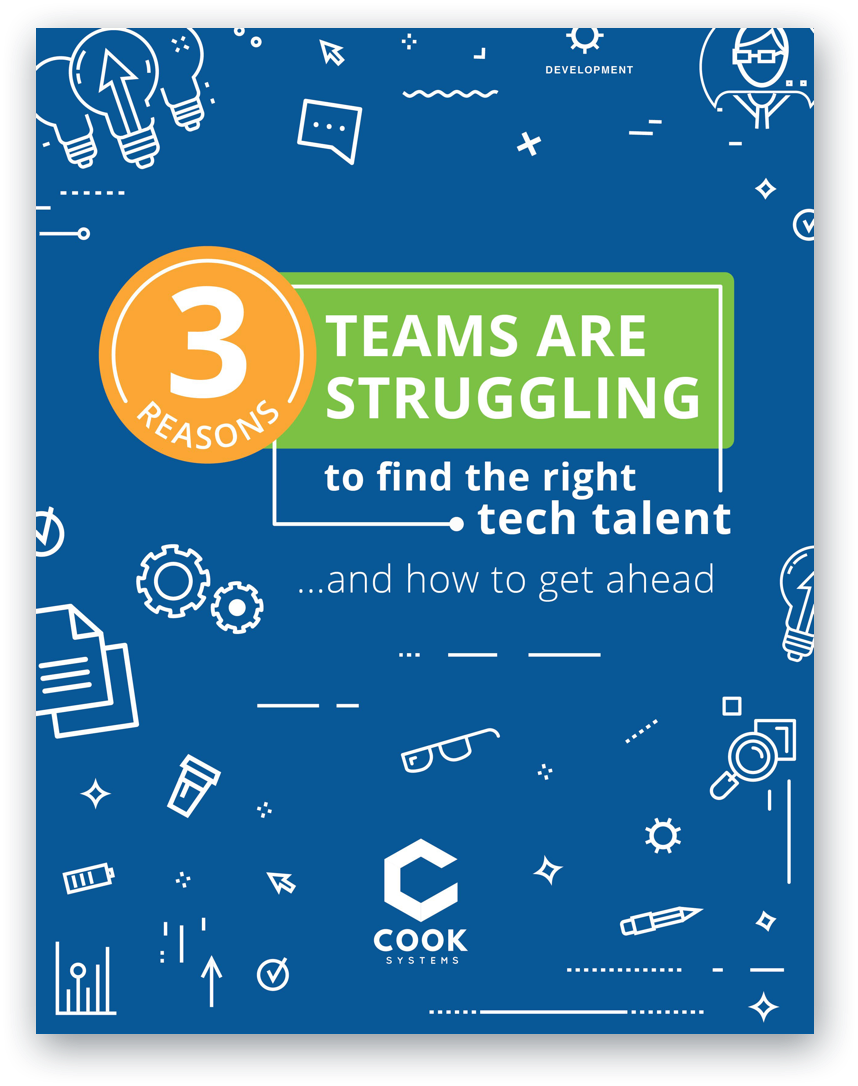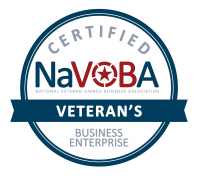Where Resumes Fail in Finding the Best IT Talent

Hiring managers have been doing it for decades. (Maybe even centuries, as the first “resumé” is said to have been composed by Leonardo Da Vinci.) Need to fill a position? Sift through resumés until one catches your eye. Or, in today’s world, let a program scan them for you. Put the ones with the best experience in the “interview” pile. Move on to phase two.
It seems effective enough. But the truth is, resumés are not the best indicator of whether or not a candidate is qualified for an open position. And if you solely rely on them to point you toward your new developer, you’re probably missing out on the best person for the job.
Why Resumés Fail
While the purpose of the resumé hasn’t changed, using it as the primary — or only — gauge of a candidate’s future success in a role fails the company for several reasons.
“A resumé is a billboard,” says Brent Nair, Chief Operating Officer of Cook Systems. “It's how you advertise yourself.”
"Though they still play a role in hiring, the problem is that resumés are “2D,” he adds. “It shows you facts and actions related to a specific timeline.” If the candidate is a little more focused in their resumé, it may highlight skills relevant to the position, even if the experience itself is unrelated, but even so, it’s difficult to get a glimpse of who a person really is — the “3D” experience — just by looking at a resumé.
Secondly, as a result of only working from these “2D,” experience-focused write-ups, hiring managers could miss out entirely on an incredible team member, simply because he or she does not have the specific professional experience deemed “qualified.” This is particularly true if keywords are used in scanning resumés for potential candidates.
“When resumes are uploaded into employer databases, crawlers can have a hard time with titles and keywords,” says Carisa Miklusak, CEO of the algorithmic hiring platform tilr. “New titles are used every day that didn’t exist prior, and they don’t always give a clear picture of someone’s skillset.”
One of the biggest mistakes we see is hiring managers putting too much emphasis on listed experience. Experience does not always equal aptitude or potential. A candidate who may have spent five years on a development team but has not cultivated have the interpersonal skills to be a successful collaborator is far less valuable than someone with less formal coding experience but is armed with the soft skills, drive and enthusiasm to learn you need for your team.
“Employers are interested in skills and the results someone can generate, rather than titles or previous employment,” Miklusak adds. “Focusing on skills provides a fuller understanding of the candidate’s experience and capabilities, and opens up more opportunities.”
Finding the Qualities that Matter Most
When it comes down to it, nearly any technical skill can be taught. Here are a few of the most important skills for developers that can’t be adequately demonstrated on resume:
- An eagerness to learn - Do they try new things, take initiative to pursue learning opportunities, ask questions, challenge themselves with projects that test their skills?
- Works well with others - Are they open to others’ ideas? Do they contribute valuable insights, lend perspective to teammates, take constructive criticism well? Are they willing to defer to others’ leadership?
- Adaptable to change - Are they flexible problem solvers? Can they effectively move on to tackling new goals if the old ones are scrapped or revised?
If a person has these three qualities, they already have skills that are much harder to teach. Hiring managers must think about more than technical skills and experience when considering the type of person they’re looking for in a candidate. These traits should also be included in job descriptions. More than simply "being a team player” — what does that mean for your organization specifically?
Finding these qualities certainly takes more effort than scanning resumés, but the payoff — including peace of mind that you won’t have to hire someone else in a few months — is worth it.
If you are using a recruiting agency, ask for more information on the candidate beyond the resumé. Ask about what they’re like — for stories of how they’ve reacted in past professional situations, however unrelated to the industry itself, that might demonstrate the skills you're looking for. For example, if you need a candidate who is adept at communicating with leadership or other non-developers in the organization, ask for an anecdote in which the candidate displayed this quality. Has there been a scenario in which the candidate had to communicate disappointing news about a project to a higher-up, or explain a complicated project to someone who isn’t familiar with the lingo or details? Of course, asking a candidate directly in an interview for stories like these is extremely helpful as well. Even if the example they give didn’t necessarily have to do with development, if it’s evident the skill is there, that’s what you’re looking for.
It’s also important not to overlook tried-and-true methods like relying on references and your own intuition. With references, you can even be specific about what type of reference you’d like -- for example, asking for a reference who can specifically speak to the candidate’s abilities in problem solving or collaboration with concrete examples. Additionally, simply sitting across a table from someone can give you a strong idea of their authenticity and whether or not they’d be a good fit for the team.
Seeing Candidates in 3D
At Cook, we know a lot about what it takes to become an enterprise developer because of our industry leading training programs: FastTrack’D and DevYou. These programs turns promising coders into enterprise-ready developers in just a few weeks.
It’s a rigorous process, but the candidates who graduate from the programs are not only technically skilled but ready to join a team, contribute and creatively solve problems. The programs are unique in many ways, but one of the primary differentiators from other bootcamp-style programs is that we work with students to develop those additional soft skills they need to thrive at a company.
As a result, many of our graduates have come from backgrounds unrelated to IT or coding but have been extremely successful in the field upon entering the workforce. Anthony Perry, for example, spent years behind the wheel as a truck driver before becoming a developer — coincidentally, at a trucking company — as part of their EDI integration team. From a degree in political science to a career in sports marketing, alumni like Christopher Thomas and Yolanda Thompson have successfully shifted into thriving careers in technology because they had the drive, natural talent and interpersonal skills to be valuable long-term employees.
“What’s been consistent with these successful alumni is their motivation for a career change, their tenacity to learn a new skillset and the knowledge to take what they’ve learned from those previous roles and apply them, whether that be teamwork, collaboration, investing in themselves,” says Brent Nair, Chief Operating Officer of Cook Systems. “These candidates have gone on to be very successful because of those traits.”
Without seeing candidates in 3D — relying only on a resumé to guide them — hiring managers easily miss out on uniquely skilled team members. It’s particularly true for developers, now that the technical skillset can be acquired in a variety of ways. What you’re looking for -- a well-rounded, team-ready developer -- can’t be found by looking at resumés alone, especially if they’re being filtered by keyword. Don’t lose out on gaining some of the brightest candidates with the most potential because their resumé doesn’t look how you’d expect -- or because it never made it to your desk. Go beyond the resumé, engage candidates on a 3D level and transform your development team.
Want to learn more about how to build a great tech team? Check out this free ebook.
3 Reasons Teams are Struggling to Find the Right Tech Talent
...and how to get ahead


